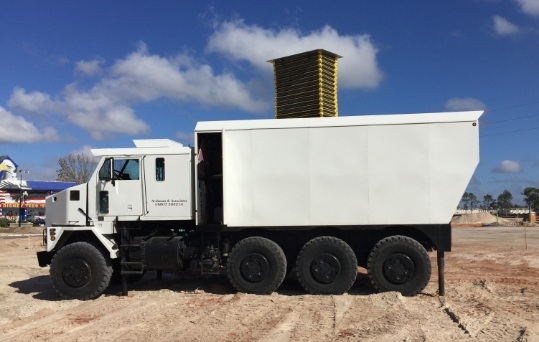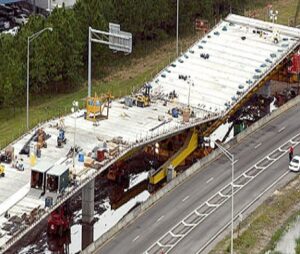Infrastructure and Development:
Subsurface Geotechnical Investigation
Fully understanding underground conditions is the most critical element of geotechnical, hydrogeologic and geoenvironmental evaluations and investigations.
Geotechnical Site Investigation at Ardaman
At Ardaman, we employ a wide range of investigative methods, procedures and equipment to explore the subsurface and to characterize soil, rock and groundwater conditions. We use both direct and indirect approaches, incorporating devices that range in complexity from traditional, such as Standard Penetration Test (SPT) borings, to “state-of-the-art”, such as our Cone Penetrometer Test (CPT) unit.
However, in any particular application, the more sophisticated (and costly) methods may not be essential, yet the more basic approach may not be sufficient to adequately define the underground conditions. Many factors, including budget, schedule, client needs and expectations, as well as standards of practice and technical data requirements, are considered when developing an investigation program. Our objective in all cases is to apply the technology that best satisfies your needs.

Subsurface Geotechnical Investigation Projects
Indirect Investigation Methods
The indirect approach to evaluating subsurface conditions includes all methods that acquire information without physically invading or penetrating the ground surface. Such methods include interpreting and evaluating aerial photographs, geologic maps, groundwater contour maps, topographic maps, and other types of published information, along with geophysical methods.
Ardaman maintains a full library of information relating to geotechnical engineering, hydrology and geo-environmental sciences. Our librarian makes sure that the most recent maps, photographs and reports are readily available to our engineers and scientists. Our information resources include a database containing information on over 175,000 projects completed by Ardaman since 1959. These resources are routinely tapped for preliminary evaluations, to help develop a field investigation program, and to augment the data obtained from the field program.
Ardaman’s personnel are capable of applying and evaluating geophysical investigation procedures. Our staff is equipped with ground penetrating radar, electromagnetic equipment, micro-gravity, seismic and soil resistivity devices to explore underground conditions. Most importantly, we are aware of the limitations of these methods and recognize that they are interpretive in nature and are best used when complemented with direct exploration techniques.
Direct Investigation Methods
A more detailed description of underground conditions at specific locations are revealed with direct investigation methods that obtain information by physically sampling or testing soil, rock and groundwater. The sampling or testing devices are inserted into a borehole advanced into the ground by drilling methods, and either samples are returned to the surface for evaluation and testing, or the properties of the underground profile are measured by in-place testing.
Ardaman maintains a fleet of more than 25 drilling rigs mounted on various platforms including trucks, all-terrain vehicles, narrow-access track and a barge. These rigs employ both rotary fluid and hollow stem auger methods to perform soil borings.
Soil and rock samples are obtained through the boreholes using a variety of sampling devices. Ardaman’s drill crews are well trained and proficient with all of the drilling and sampling tools at their disposal, and they have received the OSHA 40 hour training and annual refresher courses required for working on hazardous waste projects.
Ardaman employs numerous in-place testing methods, many of which have been developed in-house, and define “state-of-the-art” geotechnical testing. Ardaman was instrumental in introducing the use of the cone penetrometer in Florida and currently uses a custom built cone penetrometer test unit (pictured above), situated centrally in our Orlando office, which represents the leading edge of CPT technology. This unit can efficiently conduct cone penetrometer soundings as well as flat plate dilatometer tests, piezo-cone soundings and seismic cone studies. These devices can evaluate, through either direct measurement or empirical correlation, geotechnical properties such as shear strength, compressibility, temperature, and pore pressure. In addition, Ardaman uses equipment for instrumenting soil behavior such as inclinometers for measuring horizontal deformation, vertical settlement profile detection devices, and total earth pressure cells.
Request Our Engineering Services.
Get a fast response regarding our services.
- We respect your privacy and security. We will never sell, trade or share your personal information.




